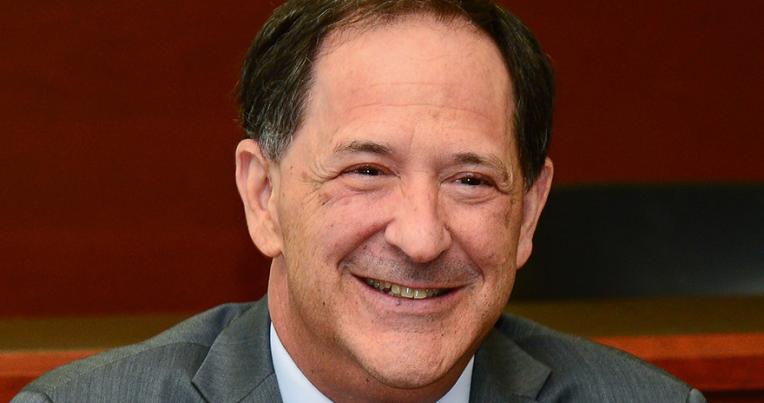Sixth International Summer School on Geoengineering Governance, 2019
Governing global CO2 removal and solar geoengineering in effective climate change policy.
August 5 – 11, 2019, Banff, Alberta, Canada
The Emmett Institute on Climate Change and the Environment at the UCLA School of Law, in partnership with the Forum for Climate Engineering Assessment, the Solar Radiation Management Governance Initiative, the Harvard Solar Geoengineering Research Program, and the Carnegie Climate Governance Initiative (C2G2), is pleased to announce the Sixth International Geoengineering Governance Summer School.
As the severity of climate-change risks and the inability of current efforts to adequately limit risks become clear, geoengineering technologies are increasingly both receiving attention and generating controversy. These technological responses appear to offer substantial risk-reduction opportunities, serious new risks, and novel and potentially severe governance challenges.
To help advance the debate, the 2019 Summer School will bring together an international group of leading experts with post-graduate students, early-career researchers, and professionals seeking to develop expertise in the field. It will facilitate intensive, collaborative explorations of the societal, political, governance, and ethical aspects of geoengineering.
The focus of the Summer School is primarily the governance challenges and opportunities posed by geoengineering, related both near-term to research, development, and capacity-building, as well as longer-term and more speculatively to potential future deployment. The topics addressed relate to both solar geoengineering and large-scale carbon dioxide removal (negative emissions) methods, including their current and potential interactions – with each other, and with the primary climate responses of emissions cuts and adaptation.
Following a set of focused briefings to introduce key concepts and controversies, the Summer School will be organized around collectively generated discussion sessions and working groups to advance understanding and explore concrete governance approaches. The aim is to seed continuing collaborations to advance research, assessment, and policy development to inform how society can responsibly shape these technologies' research, development, and – if appropriate – use.
Who is this for?
We invite applications from post-graduate students and early-career researchers with interests in the societal, political, governance, and ethical issues posed by geoengineering, working in any relevant field. The Summer School is also suitable for NGO, government, or other professionals working in related areas who seek an intensive experience to develop expertise in geoengineering governance. The Summer School aims to bring new voices and perspectives into geoengineering discussions, particularly from developing countries. Consequently, while prior experience working geoengineering issues is preferable, it is not required. In view of the Summer School's collaborative nature, strong English-language skills are essential.
Faculty/ Resource People (confirmed as of 3/15 – additional faculty to be announced)
- Dr. Holly Buck, UCLA
- Prof. Anna-Maria Hubert, University of Calgary
- Prof. Sikina Jinnah, UC Santa Cruz
- Prof. David Keith, Harvard University
- Prof. Douglas MacMartin, Cornell University
- Prof. Juan Moreno-Cruz, University of Waterloo
- Dr. David Morrow, Institute for Carbon Removal Law and Policy, American University
- Oliver Morton, The Economist
- Andy Parker, Solar Radiation Management Governance Initiative and University of Bristol
- Prof. Edward A. (Ted) Parson, UCLA
- Janos Pasztor, Carnegie Climate Geoengineering Governance Initiative
- Amb. Franz Perrez, Swiss Ministry of Environment and Climate Change
- Dr. Jesse Reynolds, UCLA
- Prof. Kate Ricke, UC San Diego
- Dr. Dan Sanchez, UC Berkeley
- Dr. Shuchi Talati, Union of Concerned Scientists
Cost and Logistics
The summer school will begin with a dinner reception and welcome/introductory session on Monday, August 5, and will continue through Saturday, August 10 with participants departing on Sunday, August 11.
The summer school's registration fee of USD $300 will include double-occupancy lodging and meals at the Banff Centre. (Single-occupancy accommodation is available for an additional cost.) Participants will be responsible for their own travel. Some scholarship funds will be available for participants who could not otherwise attend, including scholarship funds specifically designated for participants from developing countries.
Application and Deadline
To apply, send a statement of no more than 3 pages, including the following:
- Your current professional or academic position and other relevant qualifications and experience (a current CV or equivalent information)
- Your interest in and experience with geoengineering, including how it relates to your past, present, or future work.
- What you hope to get out of the Summer School, including any specific collaborative project you would wish to pursue there.
- Current students: please include a graduate transcript. An unofficial transcript is acceptable. Transcripts and CVs do not count toward the 3-page guideline.
- If you are requesting scholarship support, please include a note to that effect and brief explanation, including the amount requested.
Please submit this information in PDF format. If possible, consolidate your submission into a single PDF file.
- Give the file a name that begins with your last (family) name
- Send the file as an email attachment to CEGOVsummerschool@law.ucla.edu
- Use "Application to summer school" as the subject line of your email.
- Inquiries or requests for further information about the summer school can also be sent to the same email address. For these, please use as the subject line "Inquiry re summer school."
The revised application deadline is May 10. Applicants will be informed of decisions by May 20, in order to allow time to obtain Canadian visas for participants from nations that require them.
